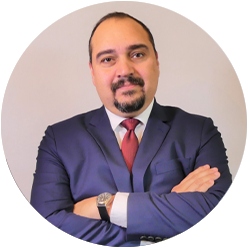When a loved one passes away due to the negligence of a medical professional, the grief and pain experienced by the family can be overwhelming. In such tragic circumstances, Florida law provides the option for the surviving family members to pursue a wrongful death claim. This legal avenue seeks to hold the responsible parties accountable for their actions or lack thereof. Understanding the intricacies of Florida’s laws regarding wrongful death in medical malpractice cases is essential for families facing such a devastating loss.
The Basics of Wrongful Death Claims in Florida
Wrongful death occurs when an individual’s death is caused by the negligence or wrongful act of another. In the context of medical malpractice, this refers to situations where a healthcare provider’s substandard care results in the death of a patient. Florida’s wrongful death statute allows certain family members to seek compensation for the emotional and financial toll the death has caused. These laws are designed to protect the rights of the deceased’s estate and provide for the surviving family members who are left to deal with the consequences of the tragic loss.
In Florida, wrongful death claims are governed by the Florida Wrongful Death Act. The act sets forth the specific rules and procedures that must be followed when pursuing a wrongful death claim. It also defines who is eligible to file a claim and what types of damages may be recovered. Understanding these legal nuances is critical for anyone considering a wrongful death lawsuit related to medical malpractice.
Who Can File a Wrongful Death Claim in Florida?
Under Florida law, a wrongful death claim can only be filed by the personal representative of the deceased’s estate. This individual is typically named in the deceased’s will. If no representative is named, the court may appoint one. The personal representative files the claim on behalf of the deceased’s estate and the surviving family members. While the personal representative is the one to file the lawsuit, the claim is made for the benefit of the deceased’s spouse, children, and, in some cases, parents and other relatives who were financially dependent on the deceased.
It is important to note that Florida law limits who can benefit from a wrongful death claim. For example, if the deceased is an adult and has no spouse or children, the claim can still be pursued, but the beneficiaries might be limited to parents or other dependents. Each case is unique, and determining the rightful beneficiaries often requires a deep understanding of the legal requirements set forth by Florida law.
Establishing Negligence in Medical Malpractice Cases
In any wrongful death claim arising from medical malpractice, the burden is on the plaintiff to prove that the healthcare provider’s negligence directly caused the death of the patient. This involves establishing that the provider failed to meet the standard of care expected in the medical community and that this failure resulted in harm to the patient.
The standard of care refers to the level and type of care that a reasonably competent healthcare provider with a similar background and in the same medical community would have provided under similar circumstances. To successfully prove negligence, the plaintiff must demonstrate that the provider’s actions deviated from this standard. This often requires the testimony of other healthcare providers who can speak to what the standard of care should have been.
In addition to proving that the standard of care was not met, it must also be shown that this failure directly caused the patient’s death. This causation can be complex to establish, particularly in cases where the patient had pre-existing conditions or other factors that contributed to their death. However, with the right legal representation, families can build a compelling case to seek justice for their loved one’s untimely death.
Choosing a Car Accident Attorney Personal Injury Case ValueRelated Videos
Types of Damages Recoverable in Wrongful Death Cases
Florida law allows for the recovery of various types of damages in a wrongful death claim. These damages are intended to compensate the deceased’s estate and the surviving family members for their losses. The types of damages that may be recovered can include economic damages, non-economic damages, and punitive damages in certain cases.
Economic damages are tangible losses that can be calculated and documented. These include medical expenses incurred before the death, funeral and burial costs, and lost wages and benefits that the deceased would have provided to their family had they lived. Additionally, if the deceased provided services such as childcare or household management, the value of those services may also be included in the claim.
Non-economic damages, on the other hand, are more subjective and can be more challenging to quantify. These damages are meant to compensate for the emotional suffering and loss of companionship that the family experiences as a result of their loved one’s death. In Florida, there are caps on non-economic damages in medical malpractice cases, which limit the amount that can be awarded for pain and suffering.
Punitive damages are less common and are only awarded in cases where the healthcare provider’s actions were particularly egregious or reckless. These damages are not intended to compensate the family but to punish the wrongdoer and deter similar behavior in the future.
Statute of Limitations for Wrongful Death Claims in Florida
One of the most critical aspects of filing a wrongful death claim in Florida is understanding the statute of limitations. This is the time limit within which a lawsuit must be filed. In Florida, the statute of limitations for wrongful death claims arising from medical malpractice is generally two years from the date of death. If a lawsuit is not filed within this timeframe, the right to pursue a claim may be lost forever.
There are some exceptions to this general rule. For example, if the cause of death was not immediately apparent and was discovered later, the statute of limitations may be extended. This is known as the “discovery rule.” However, even with this exception, the statute of limitations cannot be extended beyond four years from the date of the incident that caused the death.
Because the statute of limitations is so strictly enforced, it is crucial for families to seek legal counsel as soon as possible after the death of a loved one. Delays in taking action can jeopardize the ability to recover compensation and achieve justice.
Serious Results
Challenges in Wrongful Death Medical Malpractice Cases
Pursuing a wrongful death claim in the context of medical malpractice is often fraught with challenges. The healthcare provider’s defense team will typically mount a vigorous defense, aiming to prove that their client did not deviate from the standard of care or that other factors contributed to the patient’s death. In addition to the complexities of proving negligence and causation, there are also practical challenges, such as gathering evidence and obtaining credible testimony.
The emotional toll on the family can also be significant. Reliving the circumstances of a loved one’s death while navigating the legal process can be overwhelming. This is why having a compassionate and experienced legal team is so important. They can handle the legal complexities and advocate for the family’s rights while allowing the family to focus on healing and remembering their loved one.
At Victory Law Firm P.A., we understand the profound impact that the wrongful death of a loved one can have on a family. We are dedicated to helping families in Florida navigate the complex legal landscape of wrongful death claims in medical malpractice cases. Our team of compassionate and knowledgeable attorneys is here to guide you through every step of the process, from gathering evidence to representing you in court.
We recognize that no amount of compensation can truly make up for the loss of a loved one. However, a successful wrongful death claim can provide financial stability and a sense of justice for the family left behind. If you have lost a loved one due to the negligence of a medical provider, you do not have to go through this difficult time alone. Victory Law Firm P.A. is here to stand by your side and fight for the justice your loved one deserves. Contact us today to learn more about how we can help you and your family during this challenging time.



